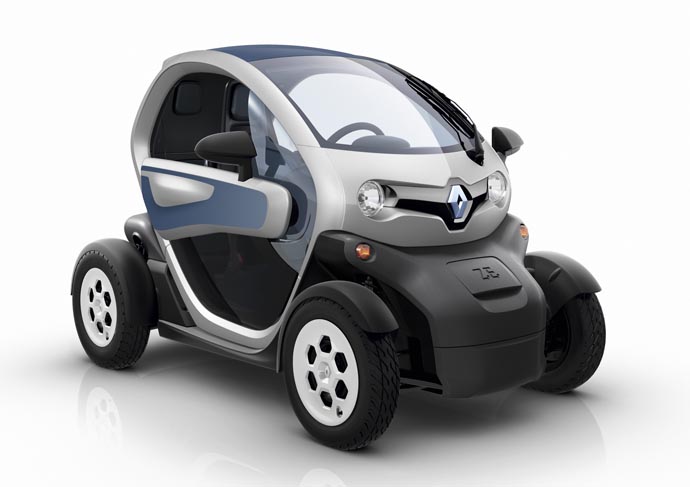In the current economic climate, there’s much talk of zombie businesses; debt-ridden companies that would die if they were not kept alive by banks eager to see their loans repaid. Given the amount of money spent on their promotion and funding, could the same be said of electric cars?
Almost three years ago, at a time when Nissan was betting millions of investment dollars on selling hundreds of thousands of its electric Leaf cars, senior executive at Honda, Tomohiko Kawanabe, was quoted as saying: “We are definitely conducting research on electric cars, but I can’t say I can wholeheartedly recommend them… It’s questionable whether consumers will accept the annoyances of limited driving range and having to spend time charging them.”
Poorer than expected sales of the Leaf seem to have made Nissan less bullish than it once was about the future of electric vehicles (EVs).
Nissan’s chief executive, Carlos Ghosn, a well-known advocate of battery-powered cars, has recently announced the company’s strategic re-positioning towards petrol-electric hybrids that overcome the challenges associated with EVs.
Meanwhile, Toyota, the company that chose to pioneer mainstream hybrid cars with The Prius, believes that the future of motoring lies not with battery-powered electric motors, but fuel-cells that convert hydrogen to electricity.
Vice Chairman Takeshi Uchiyamada, told the Reuters news agency: “Because of its shortcomings — driving range, cost and recharging time — the electric vehicle is not a viable replacement for most conventional cars. We need something entirely new.
The salvation for pure-electric cars may yet come in the form of ultra-light, ‘lifestyle’ vehicles such as the Renault Twizy. Not a practical alternative to a conventional car for most drivers , the Twizy is tiny, expensive and relatively slow. But the reception it has had from the public and motoring journalists alike has been nothing short of remarkable . In many ways it is a return to earlier days of motoring – those who have test driven it relish its simplicity.
Motoring journalist at the Guardian Sam Wollaston described the experience of driving the Twizy thus: “I make more new friends on the road. As a famous motoring journalist, I’ve driven a lot of fancy cars, but none has created a stir like this. It’s like being a celebrity. And the response is almost universally positive. It’s like being a celebrity people actually like. It’s like being Clare Balding, I imagine.”
The main barrier to Twizy ownership appears to be the price: £6,795 plus £540 each year to hire the battery.
Surely what is needed to revive the fortunes of the electric car is the automotive equivalent of the iPhone – an object that is as well-designed, practical and intuitive to use as it is desirable.
In fact Apple co-founder Steve Jobs reportedly had ambitions to build an icar.
If pure electric cars are ever to be anything more than undead vehicles kept from dying by government subsidies, it will take someone with the design and marketing credentials of Jobs to take on Detroit and succeed.

Thomas Lankester
Hi
A disappointingly one sided piece, with information cherry picked to support the zombie ‘angle’. We are barely 2 years into the relaunch of electric mass produced cars, the EV charge network is still very patchy and roll out has been slow, cost have been high and range limited in (most) of the first generation production cars. It is right to point out that ambitious sales targets have not been met but for balance, the piece should also note increasing year-on-year sales, wider range of plug-in vehicles to choose from, that battery-only are not the only plug-ins, prices are coming down (10% cut on the Leaf alone, excluding inflation price erosion, Renault Zoe at <£14k) and ranges are going up (Leaf Mk2 range increase of 5-10%, Renault Zoe at 120 miles). All that progress, on every front does not seem to fit the 'zombie' meme. As for the subsidy itself, for most electric cars it comes to less than the VAT (so UK tax-payer is not paying a net subsidy on these early cars).
Some basic physics was also missing, Hydrogen fuel cell vehicles ARE electric vehicles but use electricity at half the well-to-wheel efficiency of battery electrics. Bottom line is: we are struggling enough to bring low-carbon electricity generation on line to replace fossil fuels without frittering half of it away. As to needing a Steve Jobs for electric cars, we have one and his name is Elon Musk. See also http://gas2.org/2013/02/11/reuters-says-electric-cars-are-dead-again-but-its-different-this-time/
Tomthumb
A vocal minority assumes western nations will soon adopt the electric car as a utility device, rather than an anomaly for wealthy environmentalists. This will depend on a degree of state-funded infrastructure that is a completely alien concept right now. Electric vehicles, with the exception of electrically-assisted bicycles, are little more than toys. They remain a novelty – the perfect third (expensive) car for the average household
Thegreatpretender
Elon Musk? Are you joking? He builds toys for millionaires, not transport for the masses.